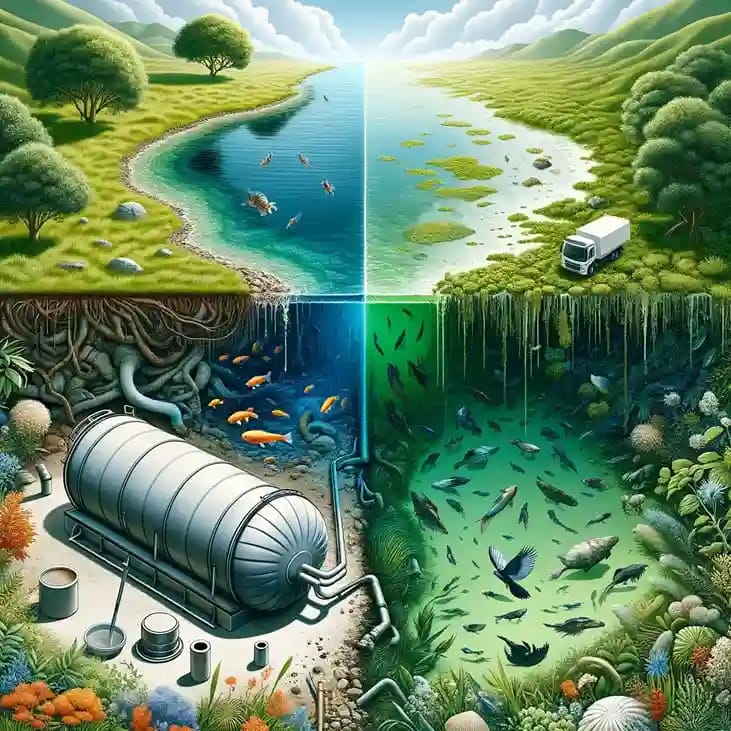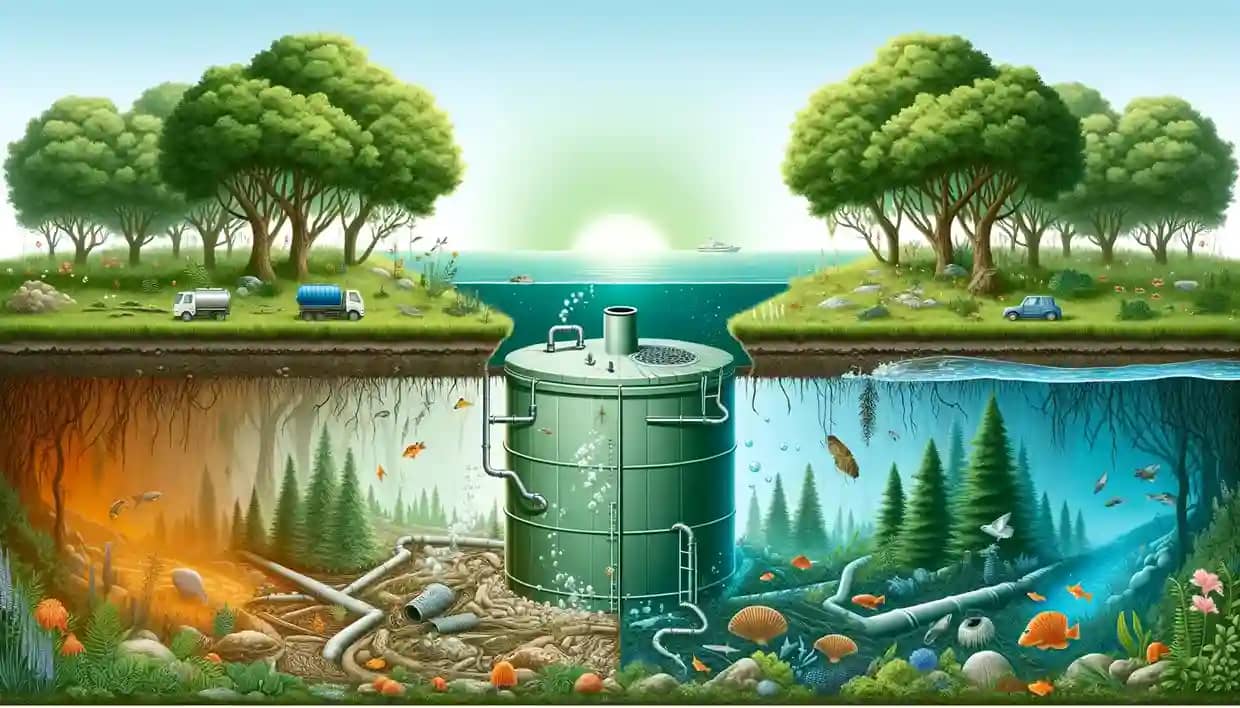Are septic tanks bad or good? If you are looking for the answer to this question, you want to buy a septic tank. Septic tanks are a common wastewater treatment system for homes and businesses that are not connected to a municipal sewer system. Septic tanks collect and treat wastewater from toilets, sinks, and other plumbing fixtures. However, there is some debate about whether or not septic tanks are bad for the environment.
Since everyone has a different opinion, we have prepared a content to answer your questions on this subject with pros and cons. Here you can find many details about what harm septic tanks can cause. If you want to buy a septic tank, we would like you to make your decision after reading our article.
Potential Environmental Impacts of Septic Tanks
Therefore, we must be aware of some of our responsibilities when using a septic tank. Because we are responsible not only for ourselves but also for the future of our children and nature. The more we harm nature, the more we and our children will live in an uninhabitable world in the future. Please use all products, including septic tanks, with a certain sense of responsibility. Septic tanks can have a number of potential environmental impacts, including.
Groundwater Contamination
If a septic tank is not properly maintained, it can leak wastewater into the groundwater. This can contaminate the groundwater with harmful bacteria and nutrients, which can pose a health risk to humans and wildlife.
Surface Water Contamination
Septic tank effluent can also contaminate surface water, such as lakes and rivers. This can lead to algal blooms and other water quality problems. Who wants water, one of the most important things in life, to be polluted? So it is very important to use it carefully.

Nutrient Pollution
Septic tanks can contribute to nutrient pollution, which is a major environmental problem. Nutrients from septic tanks can enter waterways and cause algal blooms, which can lead to fish kills and other problems.
Soil Contamination
Septic tank effluent can also contaminate the soil around the septic tank. This can lead to the growth of harmful bacteria and other problems.
Advantages of Septic Tanks
Despite the potential environmental impacts, septic tanks also offer some benefits. Preventing potential negative effects is also linked to your correct use.
- Decentralized Wastewater Treatment: Septic tanks provide a decentralized wastewater treatment system, which can help to reduce the burden on municipal sewer systems.
- Cost-Effective: Septic tanks are relatively cost-effective to install and maintain.
- Reliable: Septic tanks are a reliable wastewater treatment system that can operate even in areas without electricity or other infrastructure.
How to Minimize the Environmental Impact of Septic Tanks

We know you want to protect nature and the environment. That’s why we will tell you how you can minimize the potential environmental impact of your tank. Following these tips will protect you and the environment. There are a number of things that homeowners can do to minimize the environmental impact of their septic tanks. Let us list them for you:
- Regular Maintenance: Septic tanks should be pumped and inspected regularly to ensure that they are functioning properly.
- Proper Siting: Septic tanks should be sited in a location that is away from water sources and in soil that is suitable for septic tank drainage.
- Use Water-Efficient Fixtures and Appliances: Using water-efficient fixtures and appliances can help to reduce the amount of wastewater that is generated and sent to the septic tank.
- Avoid Putting Harmful Substances Down the Drain: Harmful substances, such as grease, fats, and chemicals, can damage the septic tank and pollute the environment.
Septic tanks can have both positive and negative environmental impacts. However, by properly maintaining septic tanks and taking steps to minimize their environmental impact, homeowners can help to protect the environment and ensure that septic tanks continue to be a viable wastewater treatment option.
In addition, one of the important things you should do is a regular tank check. Septic tanks should be inspected every few years to ensure that they are functioning properly. Remember that you can get help from professional septic tank services. By following these tips, you can help to keep your septic tank in good working order and avoid costly problems.
